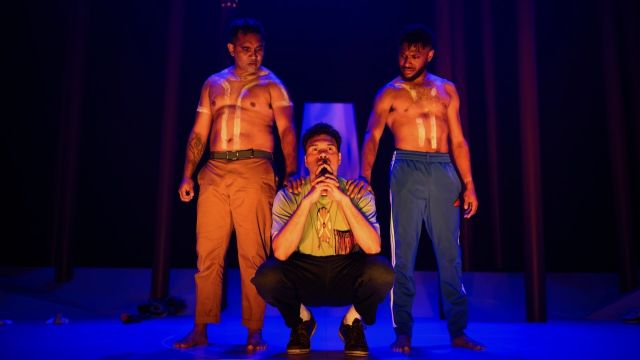Dear Brother
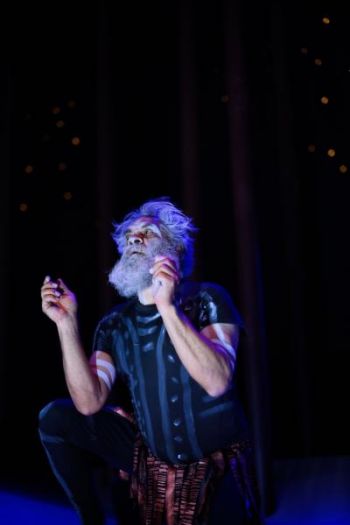
Dear Brother, a world premiere presented by Queensland Theatre and BlakDance, opened with a ceremonial prelude—a smoke ceremony in the courtyard, accompanied by traditional music. The atmosphere was set even before the audience took their seats, offering a deep sense of cultural immersion. Inside the theatre, after a compelling Welcome to Country delivered by Kelton Pell, the writers themselves gave a heartfelt Acknowledgement of Country, establishing a respectful and grounded beginning.
Written by Lenny Donahue and Tibian Wyles, the script carried a lot of depth and honour to the themes being explored. Culture, lore, and language were seamlessly embedded into the script and actions, with the writers showcasing their control of tension and release. The script navigated seamlessly between comedy and gravitas, ensuring each serious moment was afforded the weight it deserved.
Humour played a vital role in the storytelling, acting as a counterbalance to the play's heavier themes. The script was peppered with clever references to Brisbane culture, with jokes about State of Origin and the Broncos landing perfectly with the audience. These moments of levity offered a reprieve, allowing the audience to connect with the characters on a more personal level, grounding the narrative in the reality of contemporary life while still honouring its deeper cultural roots.
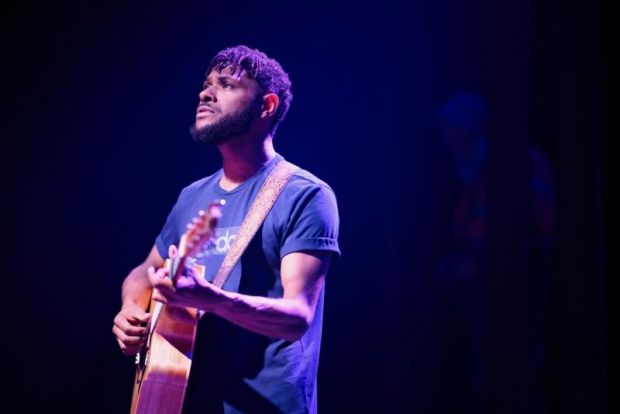
The performances were stellar across the board. Benjin Maza, as Jazz, brought a tender singing voice that resonated throughout the room, enhanced by clever sound design that transformed his voice into an ethereal echo. His rendition of a song dedicated to his character’s mother was a highlight; even an interruption by an audience member didn’t break his focus, allowing the moment to retain its emotional depth. Kelton Pell demonstrated remarkable versatility, shifting effortlessly between roles—from offering physical comedy as Uncle Max to commanding respect as Grandad and delivering a deeply emotional portrayal as Dad.
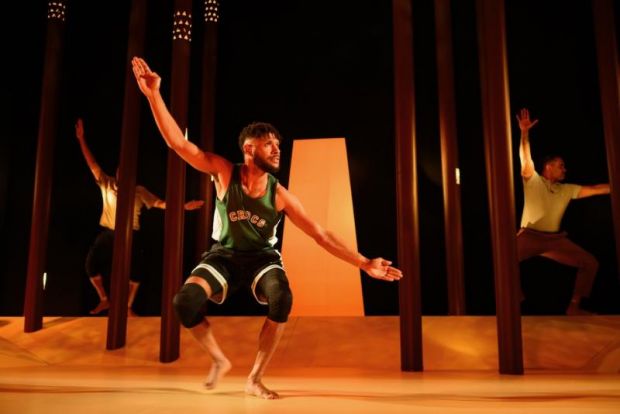
Choreographer Waangenga Blanco's work shone throughout the production, blending primal, ritualistic movements with modern, groovy dance styles. Each shift in choreography was a cascade of emotion told through motion, with solo storytelling often enhanced by the ensemble's rhythmic, ritualistic movements. The dynamic energy conveyed the rawness of masculinity while maintaining a certain elegance, encapsulating the physicality and spirituality of the narrative. This, combined with the strong bond demonstrated by the ensemble cast, beautifully reflected the play’s themes of brotherhood and connection.
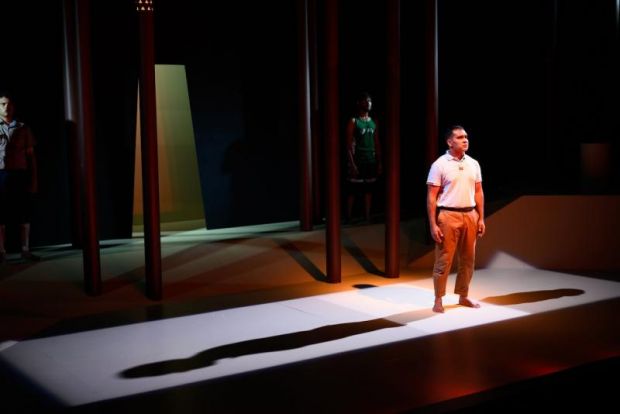
A standout element of Dear Brother was its use of physical space. The actors moved with a fluidity that extended beyond dance—each gesture and movement felt intentional, almost ritualistic. The minimalistic set served as a canvas, with the wooden stage amplifying every footfall, creating an acoustic rhythm that echoed the characters' internal journeys. The choreography was not just dance but an extension of the storytelling, merging the physical and the spiritual in a way that was both captivating and evocative.
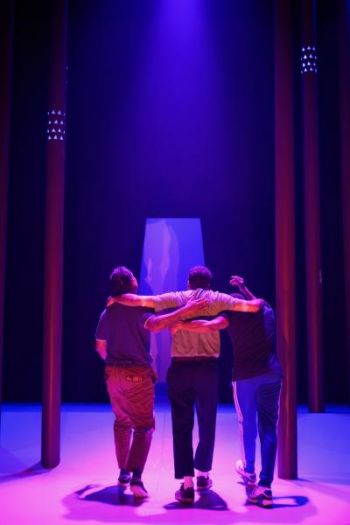 The aesthetics of the production were minimalistic yet powerful. The set design by Kevin O’Brien featuring totem pole pillars of light across a bare wooden stage added a unique acoustic element to the dance scenes, amplifying the rhythmic beats of feet against timber. Costumes, adorned with subtle flora accents like a bark applique on a shirt pocket, harmonized with the earthy and watery tones of the set, grounding the production in a sense of place and culture. Brendon Boney's sound design wrapping the audience in a sonic embrace that felt both intimate and expansive. This ethereal soundscape enhanced the sense of otherworldliness that permeated the production, creating an immersive experience. At times, it was as if the audience was eavesdropping on the whispers of the ancestors, a testament to the production's ability to bridge the gap between the present and the ancient.
The aesthetics of the production were minimalistic yet powerful. The set design by Kevin O’Brien featuring totem pole pillars of light across a bare wooden stage added a unique acoustic element to the dance scenes, amplifying the rhythmic beats of feet against timber. Costumes, adorned with subtle flora accents like a bark applique on a shirt pocket, harmonized with the earthy and watery tones of the set, grounding the production in a sense of place and culture. Brendon Boney's sound design wrapping the audience in a sonic embrace that felt both intimate and expansive. This ethereal soundscape enhanced the sense of otherworldliness that permeated the production, creating an immersive experience. At times, it was as if the audience was eavesdropping on the whispers of the ancestors, a testament to the production's ability to bridge the gap between the present and the ancient.
Dear Brother is a mesmerizing fusion of dance, storytelling, and cultural expression. It’s a production that speaks to the strength of tradition and the resilience of modern masculinity, offering a deeply moving experience that lingers long after the final bow.
Review by Rebecca Lynne
Queensland Theatre: https://queenslandtheatre.com.au/plays/dear-brother
Brisbane Festival: https://www.brisbanefestival.com.au/whats-on/2024/dear-brother
Photography by Morgan Roberts
Subscribe to our E-Newsletter, buy our latest print edition or find a Performing Arts book at Book Nook.

